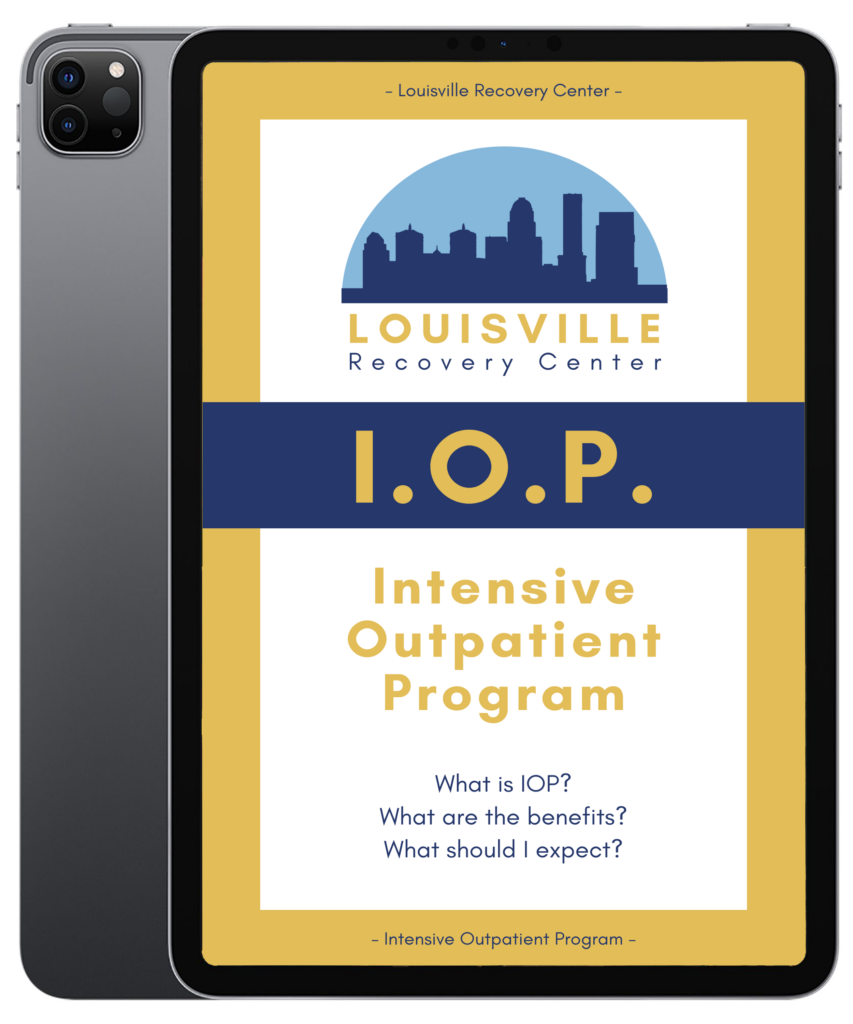Individual Therapy In Louisville
at Louisville Recovery Center
Individual therapy at Louisville Recovery Center offers a personalized approach to support our clients on their journey to addiction recovery. Our dedicated team of therapists understands that each client’s recovery path is unique, and they are committed to providing a safe and nurturing environment for healing and growth. Through individual therapy sessions, clients can explore the underlying factors contributing to their addiction, develop essential coping skills, and gain valuable insights into their thoughts, emotions, and behaviors.
What is Individual Therapy?
Individual therapy, also known as psychotherapy or talk therapy, is a common form of counseling that involves a therapist working through any problem a single individual is going through. Individual therapy is the cornerstone of mental health and substance abuse treatment. While family therapy and other experiential therapies are available as part of your treatment plan at Louisville Recovery, individual therapy allows the client to dive deep into the causes of their specific troubles. By utilizing this form of therapy, our clients can become more self-aware, gain self-esteem, create treatment plans, address mental health conditions, and put their mental well-being at the forefront.

Fill Out This Quick Form To Download Our FREE IOP eBook
What to Expect in Individual Therapy
Louisville Recovery Center’s individual therapy plans involve one-on-one sessions with our mental health professionals to address the underlying causes of addiction. These therapy sessions happen at least twice a week, ensuring that all our clients receive proper care and support. When our clients are able to meet with therapists regularly, they can develop a personal bond to create personalized treatment plans and recovery goals.

Benefits of Individual Therapy in Louisville
Utilizing individual therapy during your time at Louisville Recovery has four main benefits. These benefits are: self-understanding, mindfulness, coping skills, and communication skills.
- Self-Understanding: Individual therapy provides clients with the ability to gain a better understanding of themselves, their triggers, coping mechanisms, and the root causes of substance abuse. With the assistance of our supportive therapists in a safe environment, clients can create an individualized treatment plan. This process fosters self-awareness and self-understanding while equipping clients with the tools they need to make positive life changes.
- Mindfulness: Mindfulness is the awareness of what is happening around us and being fully present in the moment. Our therapists use this valuable tool to teach clients how to embrace the present, cultivate a positive mindset, recognize their triggers, and avoid substance use. By practicing mindfulness, clients can experience a sense of inner calm and find relief from anxiety and other challenges they may be facing.
- Coping Skills: Individual therapy equips our clients with practical coping skills and strategies to manage stress, regulate emotions, and overcome obstacles. Our therapists teach clients adaptive ways of thinking, problem-solving, and communicating, empowering them to navigate life’s difficulties more effectively.
- Communication Skills: Individual therapy supports our clients in rebuilding their communication skills, which may have been affected by addiction. This improvement in communication makes it easier for clients to connect with people who are not involved in drug use and find healthy peer support. Additionally, therapy offers ongoing support and guidance, ensuring that our clients maintain long-term sobriety and happiness even after completing our treatment program.
Individual Therapy Methods at LRC
Individual therapy methods encompass a wide range of approaches tailored to the specific needs and goals of the individual seeking treatment. These methods are designed to provide personalized support, guidance, and interventions to address the complex factors contributing to substance abuse and addiction. At Louisville Recovery Center, we offer various therapy methods to ensure that our clients’ every need can be addressed. These methods include:
- Cognitive-Behavioral Therapy (CBT): CBT is a common form of individual therapy that focuses on helping individuals change their negative thought patterns and behaviors. While traditionally, mental illnesses, such as depression, anxiety, and addiction, are classified as mood disorders, CBT classifies them as cognitive issues. This means the client’s thoughts and interpretations of situations can worsen their symptoms. During CBT sessions at LRC, our therapists will work with the clients to identify and reframe the negative thought patterns to improve their mental well-being.
- Dialectical-Behavioral Therapy (DBT): DBT is another common form of individual therapy that falls under the CBT category. The goal of DBT at LRC is to provide clients with practical skills and the knowledge to effectively manage their emotions, deal with stress, and improve their personal relationships. In DBT sessions, our therapists will assist clients in learning strategies to regulate their emotions, navigate triggering situations, and build back connections with loved ones.
- Acceptance & Commitment Therapy (ACT): ACT guides clients in acknowledging and embracing their inner emotions as natural reactions to situations and past traumas. This form of therapy emphasizes that these emotions should not become obstacles that prevent them from achieving their life and recovery goals. Instead, ACT at LRC helps our clients understand that they can coexist with their emotions while taking steps towards living a fulfilling life aligned with their values.
- Humanistic Therapy: Humanistic therapy at Louisville Recovery focuses on our client’s distinct qualities instead of solely addressing the behaviors linked to a specific mental, personality, or substance disorder. This therapeutic approach encompasses two methods: Gestalt and client-centered therapy. Both of these methods emphasize viewing the client as a complete person, considering their strengths and ability for self-healing. The main goal of humanistic therapy at LRC is to respect and support the client’s unique characteristics, helping them unleash their potential for personal growth.

- Interpersonal Therapy: Interpersonal therapy is based on the idea that some mental disorders may have a genetic component and that certain life events can trigger symptoms. At LRC, this form of therapy can be conducted one-on-one or in a group setting. It aims to help clients improve their communication skills to better handle problems that may arise in relationships and reduce stress. By focusing on enhancing interpersonal interactions, this therapy supports clients in managing their mental health and overall well-being.
- Psychodynamic Therapy: Psychodynamic therapy suggests that unresolved conflicts from childhood can contribute to alcohol abuse and drug addiction. At LRC, our therapists will dive into the client’s past to assist them in understanding and coping with their emotions and current issues. By exploring and addressing these underlying conflicts, psychodynamic therapy provides clients with the insight and tools to manage their substance use and addiction.
Individual Therapy & Substance Abuse Treatment
Substance abuse treatment goes beyond just medical detoxification, which only provides relief from the immediate effects of drug or alcohol use. Drug and alcohol addiction often stems from underlying mental, behavioral, and emotional challenges. During detox, individuals may experience complex emotions, thoughts, and behaviors that need to be appropriately taken care of. Individual therapy sessions are crucial for addiction recovery because they provide a safe and supportive space for individuals to understand and process these emotions, identify triggers, and develop healthy coping skills.
Research on individual therapy shows that both individual and group therapy can effectively address various psychological disorders and concerns within a therapeutic or counseling setting. However, each person has unique needs and comfort levels. Some find more benefit in a group setting, while others with less social skills prefer an individual approach. This individualized approach can be life-changing as it promotes mental wellness, personal growth, and healthy living.
Louisville Recovery Center Can Help
At Louisville Recovery Center, we are committed to providing addiction treatment services to clients that are struggling. Addiction is a complex issue requiring ongoing therapy, support, and care to conquer it. Louisville Recovery knows this issue all too well, and we are here to help you. Our treatment programs aim to conquer addiction through experiential, holistic, and individualized therapies. To learn more about our programs and how individual therapy can benefit you, contact our specialists today.
